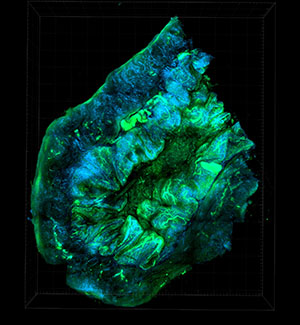FDA Approves New PARP Inhibitor for Ovarian Cancer
Earlier this week, the U.S. Food and Drug Administration (FDA) approved the molecularly targeted therapeutic niraparib (Zejula) for the maintenance treatment of adult patients with recurrent epithelial ovarian, fallopian tube, or primary peritoneal cancers that are responding to platinum-based chemotherapy.
Niraparib is the third in a class of molecularly targeted therapeutics called poly ADP-ribose polymerase (PARP) inhibitors to be approved by the FDA. However, it is the first to be approved for use in treating both BRCA mutation–positive and –negative cancers. The first and second therapeutics in the class, olaparib (Lynparza) and rucaparib (Rubraca), are both approved for use only in treating women who have ovarian cancer associated with BRCA gene mutations.
According to the FDA announcement, the approval of niraparib was based on results from the randomized, phase III NOVA clinical trial. The results, which were published late last year in The New England Journal of Medicine, showed that among the 553 patients with epithelial ovarian, fallopian tube, or primary peritoneal cancer enrolled in the trial, those randomly assigned niraparib had significantly improved progression-free survival compared with those randomly assigned placebo.
When the patients were stratified by whether or not they had a germline BRCA mutation, niraparib was found to improve progression-free survival for both groups. Among germline BRCA mutation–positive patients, median progression-free survival was 15.5 months longer for those in the niraparib arm than those in the placebo arm (21.0 months versus 5.5 months). Among germline BRCA mutation–negative patients, the improvement in median progression-free survival with niraparib was 5.4 months (9.3 months versus 3.9 months).
Although the first three FDA approvals for PARP inhibitors have all been for ovarian cancer, these molecularly targeted therapeutics are being tested as potential treatments for several other types of cancer. We look forward to hearing about some of these clinical trials on Monday, April 3, during the Cyclin-dependent Kinase and PARP Inhibitor Clinical Trials session at the AACR Annual Meeting 2017.





Hi, Thanks for providing such a wonderful information about Ovarian Cancer.
Informative. thanks
Thanks for sharing.